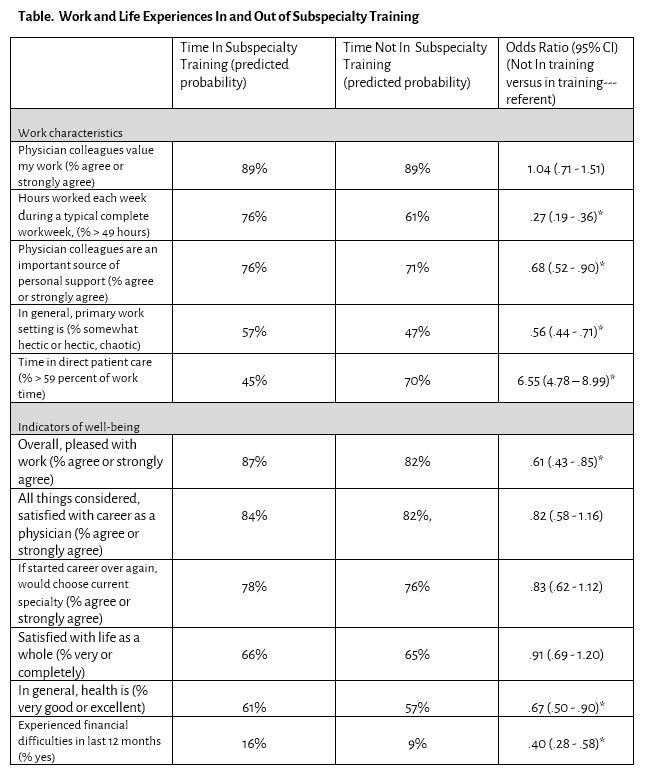William Cull, Mary Pat Frintner
Presented at the 2019 Pediatric Academic Societies Annual Meeting.
Background: Over the last decade the portion of graduating pediatric residents pursuing subspecialty training has grown. More is known about resident training experiences than about subspecialty training experiences.
Objective: Use longitudinal analyses of pediatricians who pursued subspecialty training to examine their experiences when they were in and were not in subspecialty training.
Methods: National, longitudinal data from the AAP Pediatrician Life and Career Experience Study (PLACES) from 2012 to 2017 were utilized. Analyses focused on residency graduates from 2009-2011 (n = 903) with a specific focus on those who participated in subspecialty training during the study period (n = 331). Mixed-effects logistic regression for longitudinal analysis was utilized to compare each pediatrician’s experiences during training with their own experiences when they were not in training. Non-training time varied based on when each pediatrician participated in subspecialty training; most followed training but time before was also included. Predicted probabilities were computed for the training and non-training time periods. Several work characteristics and indicators of well-being were explored (see Table).
Results: Among 2009-2011 residency graduates, 37% participated in subspecialty training during the PLACES study period. Of these, 66% were female and 17% graduated from an international medical school. During their time in subspecialty training, pediatricians were more likely to work > 49 hours, to report that physician colleagues were an important source of support, and to report that their primary work setting was somewhat hectic or chaotic. They were also more likely to report being pleased with their work, to be in very good or excellent health, and to report experiencing financial difficulties. During their time not in subspecialty training, participants were much more likely to spend their time in patient care. During their time both in and out of training, the majority of pediatricians reported satisfaction with their career, specialty, and life.
Conclusion: Years spent in subspecialty training are different in many ways from pediatricians non-training years. Challenging aspects during training includes longer work hours and greater rates of financial difficulties. While not in training, pediatricians report increased time in patient care and less personal support from colleagues. Still, over eight in ten reported being satisfied with their careers both when in and when not in subspecialty training.
